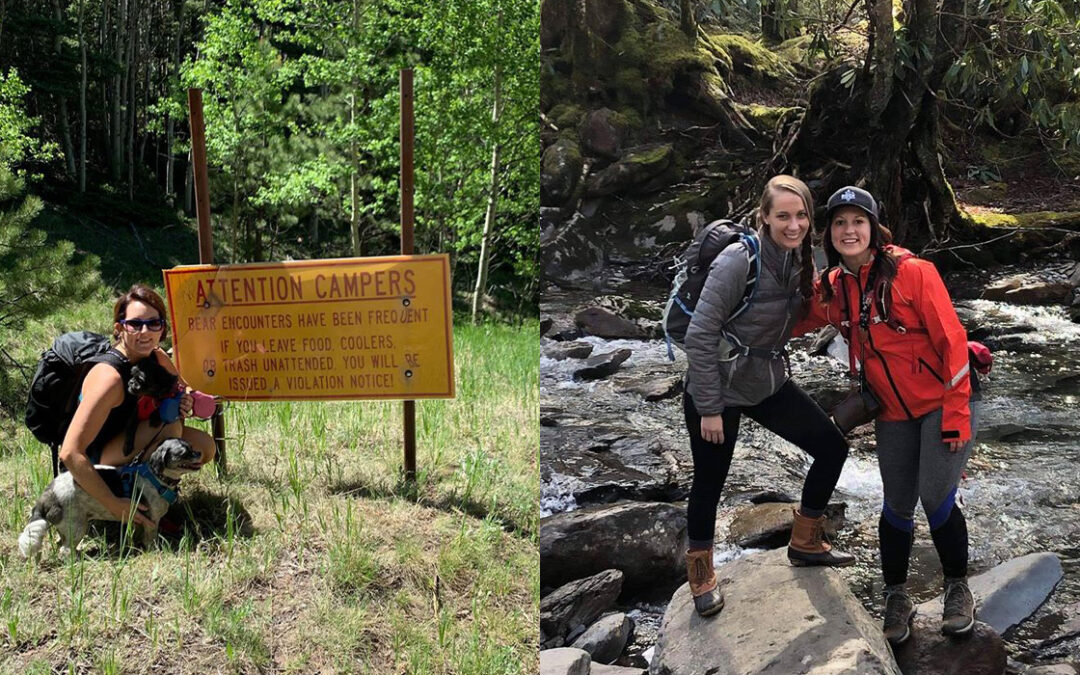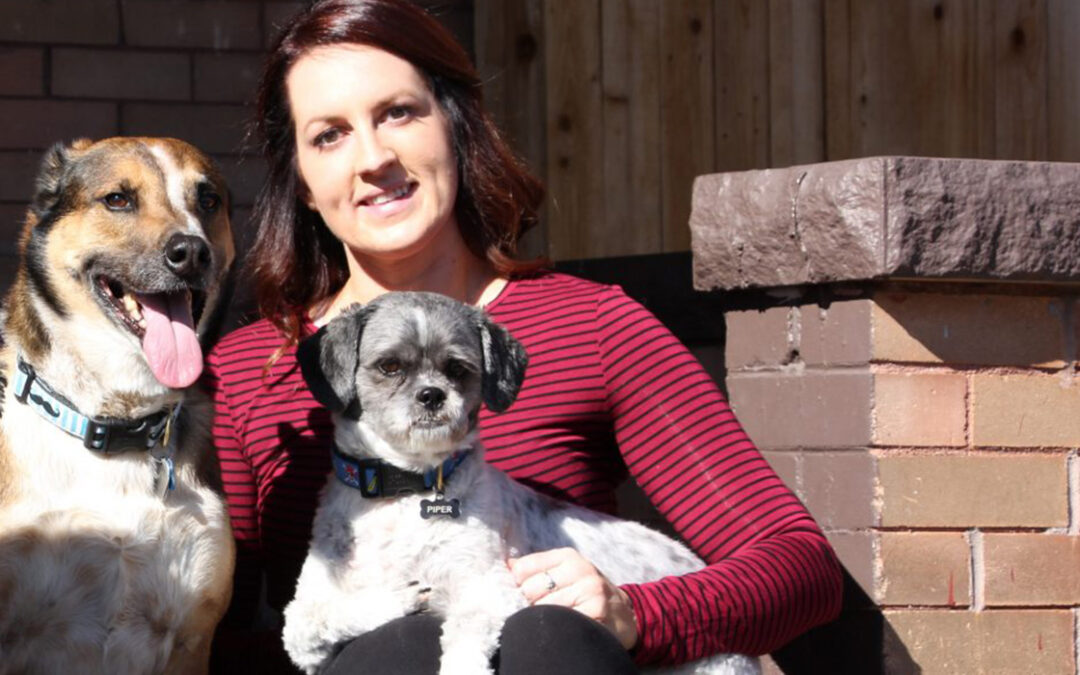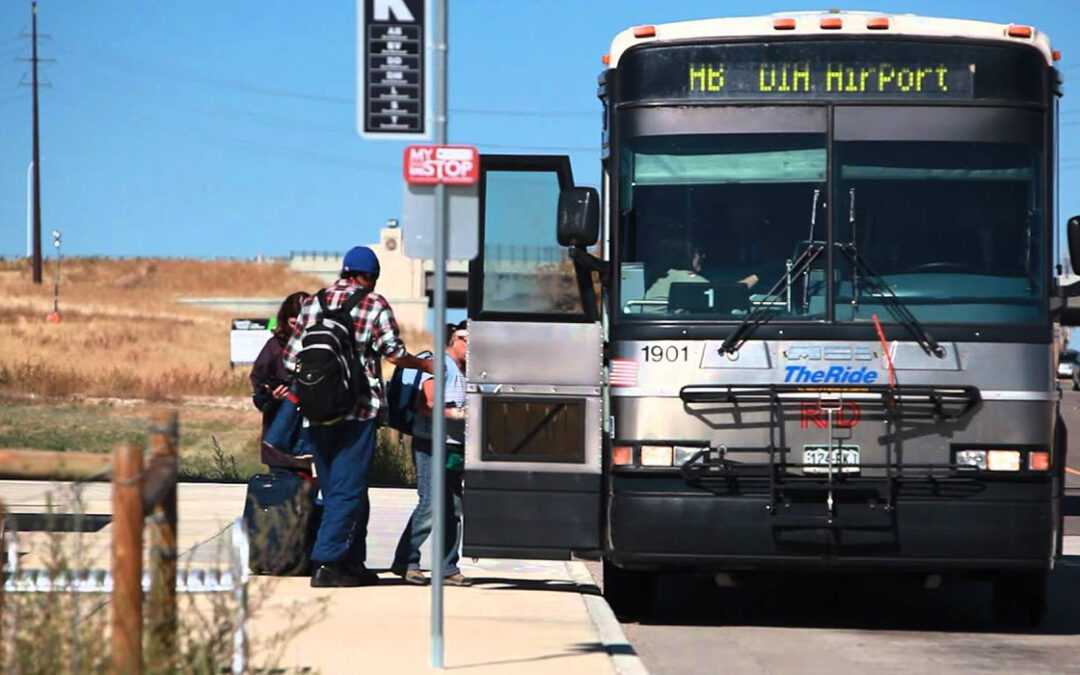
by Jennifer O'Connell | Jan 28, 2020 | Auto Accident, Bicycle Accident, Brain Injury, Bus Accident, CO Truck, Colorado, DUI, Kentucky, Motorcycle Accident, Pedestrian Accident, Personal Injury, Tennessee, Train Accident, Trucking Accident, Workers' Compensation
Jennifer O’Connell
Our goals for 2020 include helping you get to know us a little better. To aid in that venture, we are starting a video series to share a bit more about who we are and help you learn more about who you are working with. Our first video features Managing Partner Jennifer K. O’Connell. Jennifer grew up in Tennessee. Her father was a forester and her mother was a public school special education teacher. She and her sister regularly rode out to the woods with their dad or adventuring among the trees behind their family home, their two Springer Spaniels in tow. The whole family took regular camping trips to state and national parks across the country. If you could not see it in a tent, the O’Connell’s were not interested. They saw snow at the Grand Canyon in June and counted buffalo sightings at Yellowstone in February. More than one of those trips was here to the Rocky Mountains. In fact, Jennifer’s parents began visiting the mountains shortly after they were married. Colorado holds a special place in her family. Jennifer also loves her home state of Tennessee. While the mountains of Appalachia have a bit more oxygen at the top, hiking was still a big part of Tennessee life for her and her family. While the summit of Mount Le Conte is only 6,593 feet, there is a 2,763 foot climb to the top and there is often quite a bit of ice at the top.
Click here to learn more about Jennifer and keep an eye out for the next episode to learn more about her team! Hope you enjoy getting to know us!

by Jennifer O'Connell | Jan 21, 2020 | Auto Accident, Bicycle Accident, Brain Injury, Bus Accident, CO Truck, Colorado, DUI, Kentucky, Motorcycle Accident, Pedestrian Accident, Personal Injury, Tennessee, Train Accident, Trucking Accident, Workers' Compensation
Queener Law Featured in VoyageDenver
We are thrilled to see Queener Law featured in VoyageDenver! What an honor!
We love their insightful questions that prompt us to think a bit more about how we got here and why we have made the choices we made along the way. The life of a business owner is full of forks in the road and choices. It is always important to look back and evaluate the road already traveled to help make the right decisions for the one ahead. We are also extremely happy that our client-centric focus came through. We purposefully keep out hometown feel and insist that our clients speak to a partner every time. We want to make sure our clients know how important they are and how dedicated we are to their cases. It was very exciting to hear that the editors wanted to see Queener Law featured in VoyageDenver to give us a chance to share that view with the community.
Check out the feature here!
Call us any time for a free consultation or to refer your friends or family members in need of help. No more being tossed around from attorney to attorney or case manager to case manager. At Queener Law, you will be in the capable hands of a partner and paralegals from start to finish. Your case deserves undivided attention, and so do you.
by Jennifer O'Connell | Dec 9, 2019 | Auto Accident, Bicycle Accident, Brain Injury, Bus Accident, CO Truck, Colorado, DUI, Kentucky, Motorcycle Accident, Pedestrian Accident, Personal Injury, Tennessee, Train Accident, Trucking Accident, Workers' Compensation
Getting Your Medical Bills Paid the Right Way
“The insurance company said they’d pay all my medical bills. Now they only want to pay a fraction of what I owe!’ We have heard this complaint almost daily in our decades of practice. What’s the reason and who’s the culprit? Of course, every story like this begins with the fact that car insurance companies are designed to collect premiums and not pay out. But that is not the only conspiracy happening here. Hospitals and medical providers have found ways to use the car insurance system to increase profits, as well. In a recent article in The New York Times, the master plan of hospital billing is broken down into the following steps:
1. Medical Swag
When you are in a wreck, the first thing the EMS or ER staff will do is slap on that age-old neck brace. Often, that neck brace either came free as medical sales swag or was bought in bulk at a rate of a few bucks each. When you get your medical bills in the mail, you find out that your insurance paid $100-plus and you owe an additional $20 bucks or so after insurance. You could get the same brace at your local pharmacy for much less. But when your chart is flagged for a car accident, out comes the medical swag. And in the end, all of this gets paid by the car insurance company… out of your settlement.
2. The Cover Charge
When you are taken to the emergency room, you get a bill. That we know. But did you know that this bill is just for use of the room? In essence, that bill is a “cover charge” for entry. In addition to that fee, which may vary depending on how emergent or traumatic your injury may be, there is a separate fee for every material used and every person who walks into the room. In many cases, you’ll even get a completely separate bill just for the use of a doctor, a necessary component of your emergency room visit. This bill, again, may vary based on what the hospital determines is the severity of your injury. Two guesses what they label car accident victims as in order to increase their bill.
3. Impostor Billing
Not only can you get billed for every person who walks in the room, but you may also receive a bill for people who you have never met. Medical billing allows for “consult billing,” even when the physician never consulted with the patient themselves. If a radiologist simply stops an orthopedist in the hallway for a second look at your x-rays, you get billed. These are not common charges, but we see them often in cases like auto accidents where the hospital anticipates deep pockets.
4. The Drive-By
In more serious cases, where post-ER treatment is required, you can get billed even before your first visit. For instance, if your injury requires physical therapy, a therapist can enter the room just to discuss your future therapy visits, and you will receive a bill for that conversation. A full assessment or actual therapeutic treatment is not required for the hospital to bill for it.
5. Avectus
We have added this prong because it is so prevalent and crushing to your in-pocket compensation while filling the hospital’s bank account. Hospitals allow representatives from Avectus or other lien companies to enter patients’ rooms, although they have no medical training or degrees and have not received consent from the patient or relatives. Their only purpose is to have medicated and shocked accident victims sign forms promising to pay the hospital’s bill in its entirety, regardless of whether they have health insurance. Why? Because the hospital does not want to take the contractual discount with the health insurance, and instead wants to take as much as possible from the auto insurance policy, in addition to all of your other medical bills.
The End Game
Why do we care so much about what the hospital is doing if the car insurance company is paying in the end? Why should you care about what money goes where? An auto insurance policy is like a bank account. Everything that comes out of it – including medical bills – reduces the amount in the account. In other words, every penny the hospital takes is one less for you. If your hospital bill is inflated simply because you were in an auto accident, your compensation for the injuries you sustained will go to the hospital rather than to you. If the auto policy available is only $50,000 and your hospital bill is $40,000, there is very little money left to pay remaining bills, reimburse your lost wages, or cover your future medical needs. And that’s if you don’t come out with a $75,000 bill and only $50,000 in automobile insurance. What can be done to stop this? Short of changing legislation, simply put, you need an attorney. Our office has decades of experience forcing hospitals to use health insurance and refusing to pay their liens if they are on notice and ignore us. We not only fight the insurance company on your behalf, but we also hold the hospitals to a high ethical and economical standard, refusing to let them dig into the policy that was meant to compensate you. Be aware and proactive with your health and your future. Work with a firm that has no blind side. We see the attacks coming, and will head them off at the start.

by Jennifer O'Connell | Sep 11, 2019 | Bus Accident, Colorado
Late for Work? Blame the Bus.
In a time when the Mayor’s office, City Council, and the member-organizations of the Downtown Denver Partnership are working to increase ridership for public transport, RTD is announcing a driver shortage for both light rail and busses that is causing major delays for Denverites. RTD’s assistant general manager of communications, Pauletta Tonilas, told The Denver Channel’s Russell Haythorn that the shortage is due to low unemployment and a competitive job market, as well as failure of applicants to pass drug tests and background checks. And with a deficit of 80 bus drivers and 50 train operators, the problem has reached critical status. According to Tonilas, RTD has reached the point of daily disruptions, including canceled and delayed routes. Tonilas also admitted to receiving a plethora of emails from riders complaining of missed work due to the disruptions. Haythorn interviewed several RTD customers who rely on the bus and light rail systems for their daily commute. The riders noted instances of doors being closed on riders attempting to board, as the strain of added stops to the already over-worked drivers causes them to spend less time at each. Others noted buses and light rails leaving ahead of schedule for the same reason. One rider drew attention to the problem of routes cancelled altogether with little to no notice, meaning a lack of opportunity to make arrangements for alternate transportation.
Rest assured, if you – like many of us – rely on the rail or bus system to get to work, RTD is more than aware of your plight. They are actively working to find qualified drivers and operators to fill the void and get things back on track. It’s vital to our sanity to avoid traffic, to our family time to get to work and home as quickly as possible, and to our job security to arrive on time every single day. It is also vital to our safety that drivers and operators are not overworked, working too long hours to make up for deficits, and are fresh and focused on their jobs. We know from the medical and airline industries that long hours and heavy workloads can lead to mistakes. And when those mistakes are made by the operator of a multi-ton vehicle at speeds of 45 mph or more, the results can be catastrophic. Help RTD better address your concerns by contacting them with your issues and ideas. And allow us to help you or your loved one should the worst happen and an injury occur. Commutes are important, but safety should always be the number one concern.

by Queener Law | Jan 19, 2015 | Bus Accident, Tennessee
Out of the 43 people who were traveling on two buses that were involved in a tragic collision in November of 2014, 24 people were injured, three lost their lives and 16 escaped without harm, according to Local 8 Now News. As the Knoxville Police Department continues to investigate this bus accident, they have released information stating that both bus drivers were wearing their seat belts at the time of the accident.
Although both drivers have been tested for alcohol and drugs, officials will not find out whether these substances were involved in the accident until they receive the results from the tests, which may take weeks to complete. It is unclear as to what caused one bus to make an unexpected left-hand turn and crash into an oncoming bus traveling in the opposite direction. Unfortunately, these tragic occurrences are all too common to an accident attorney Cookeville.
Ensuring passenger safety on buses
Local 8 Now reported that both buses involved in the accident had received recent inspections, ensuring that all parts on the large vehicles were working correctly. While state school buses are not currently required to have seat belts, state officials are now looking into passing legislation which would require all new buses purchased after July 1, 2015 to have seat belts. The Southeastern Transportation Center and the University of Tennessee explains how buses are designed with high-backed seats, which function to cushion and protect passengers if the bus should collide with a smaller vehicle. When the bus crashed into another large bus while traveling at a high rate of speed, the safety mechanism was simply not enough to protect passengers from serious injury and death.
Bus accidents can cause serious injuries
With no safety restraints available, a large impact with a massive object may cause children and adults alike to fly out of their seats. Not only are they susceptible to broken bones and lacerations from flying objects, but they may develop a traumatic brain injury, spinal cord damage or internal organ damage from the impact. In some cases, mild brain injuries or certain spinal cord injuries may not show symptoms for several days after the incident occurs. A knowledgeable accident attorney in Cookeville knows that these injuries can cause severe damage if left unattended. All of the medical expenses, including surgical intervention, therapy and medication can become quite expensive.
Fortunately, an accident attorney Cookeville may be able to help the injured victim receive compensation to cover these expenses.




